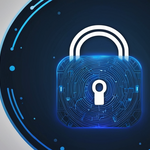
The question of whether someone needs a Virtual Private Network (VPN) represents one of the most consequential yet frequently misunderstood decisions in digital security today. Despite years of aggressive marketing promising universal protection and anonymity, the reality is far more nuanced. Recent data reveals that VPN adoption has unexpectedly declined from 46 percent of Americans in 2024 to just 32 percent in 2025, with a striking 68 percent of respondents either not using VPNs or remaining unaware of them altogether. This decline, occurring precisely when cybersecurity threats are intensifying, suggests that users may finally be questioning whether the conventional advice to “always use a VPN” reflects genuine necessity or remains rooted in outdated security assumptions. The answer depends entirely on your personal threat model, the specific activities you conduct online, whether you’re accessing corporate networks, and which VPN provider—if any—you select. Rather than offering a one-size-fits-all answer, this analysis examines when VPNs genuinely provide value, when they fall short, and how to make an informed decision aligned with your actual security needs.
The Evolution of Internet Security: Why Blanket VPN Recommendations Are Outdated
The conventional wisdom that everyone needs a VPN originated from legitimate concerns about unencrypted internet traffic and the ease with which network administrators or eavesdroppers could intercept data across public networks. However, the internet has undergone fundamental transformations that have altered the threat landscape significantly. Today, approximately 95 percent of internet traffic is encrypted using HTTPS, the secure protocol whose padlock icon appears in most web browsers. This widespread adoption of end-to-end encryption between users and websites represents a sea change from the era when VPN recommendations were first popularized. When you visit a website using HTTPS—which includes virtually every major site, email provider, and online service—your traffic is already encrypted between your device and that website’s servers. This encryption means that even if someone monitors your internet connection, they cannot read the content of your communication, only that you are connecting to a particular website.
For practical protection, see our VPN protection feature.
The critical distinction between HTTPS encryption and VPN protection frequently gets obscured in marketing materials. HTTPS creates an encrypted tunnel specifically between your browser and the website server you’re communicating with, protecting the content of your communications. A VPN, by contrast, creates an encrypted tunnel between your device and a VPN server, then from that server to the wider internet. While this sounds like VPN provides greater protection, the reality proves more complex. With HTTPS, websites cannot read data between you and them, and even the website itself cannot decrypt your traffic if it wanted to. With a VPN, however, all the traffic emerges from the VPN server’s IP address, meaning the VPN provider can theoretically see everything you do—websites visited, searches performed, files downloaded—assuming they’re monitoring connections.
This technical reality has prompted security experts to reassess their recommendations substantially. Marcus Hutchins, a respected cybersecurity researcher, conducted detailed analysis of alleged public Wi-Fi threats including man-in-the-middle attacks, SSL stripping, and TLS downgrades. His research revealed that modern operating systems, browsers, and security measures have systematically neutralized these risks. Most attacks theoretically possible in the past require multiple conditions to align—such as an attacker controlling a rogue Wi-Fi network and a user connecting to an unencrypted HTTP site for the first time before HSTS (HTTP Strict Transport Security) protections have been established. In practice, users who maintain current operating systems and browsers and avoid responding to security warnings are essentially protected on public Wi-Fi without a VPN. This finding directly contradicts decades of VPN marketing claims centered on public Wi-Fi vulnerability.
The Consumer Reports investigation into VPNs similarly concluded that for the average person accessing the web from their home Wi-Fi, there is little reason to use a VPN service. Their testing and expertise revealed that while VPNs can be useful in specific circumstances, many people do not need them, and some VPNs can actually make things worse for your data privacy and security through poor configuration, data leakage, or business practices that undermine their purported function. This represents a stark departure from the universal VPN recommendations that dominated cybersecurity discourse for the past decade.
Understanding Legitimate Threats and When They Actually Require a VPN
To make an informed decision about VPN necessity, individuals must first understand their actual threat model. Threat modeling, a framework used by security professionals, involves asking three essential questions: What do I want to protect? Who do I want to protect it from? What would happen if I failed to protect it? These questions generate clarity absent from generic “everyone needs a VPN” statements. A software developer protecting proprietary code has vastly different requirements than a casual social media user. A journalist investigating government corruption faces threats that a tourist checking email does not confront.
Internet Service Providers represent one genuine threat that VPNs can address, at least partially. Without a VPN, your ISP observes which websites you visit, how long you spend on them, and information about your devices, though they cannot see the specific content of encrypted connections. Many ISPs monetize this data by selling information about your browsing habits to advertisers, or they might throttle specific traffic types—slowing streaming services, for example. When a VPN connection is active, all traffic appears to the ISP as going to a single IP address, the VPN server, rendering it impossible for the ISP to identify which specific websites you visit. From the ISP’s perspective, they simply see encrypted traffic to the VPN provider, not your actual destination. This genuinely provides privacy from ISP monitoring and can address bandwidth throttling, since ISPs cannot identify and preferentially slow specific traffic types when it’s encrypted within a VPN tunnel.
However, this protection requires understanding what your ISP cannot and can still observe. ISPs can identify that you’re using a VPN from the connection pattern—all your traffic going to a single foreign IP address. They can detect which VPN protocol and provider you’re using by analyzing traffic patterns and port numbers. They can even observe your typical online schedule and identify patterns in VPN usage, enabling them to make educated inferences about your behavior even without seeing destination data. Additionally, the protection is only as good as the VPN provider itself. An unscrupulous VPN company could log all your activity and sell it to advertisers, governments, or criminals—defeating the entire purpose of hiding from your ISP.
Journalists, activists, and individuals in countries with government censorship face more severe threats justifying VPN use as part of a comprehensive security strategy. VPNs can help bypass government-imposed firewalls and DNS filtering by routing traffic through servers outside the censoring country. In repressive regimes where internet monitoring is weaponized against dissidents, a VPN provides meaningful protection when combined with other security measures. However, security experts working with journalists emphasize that VPNs alone are insufficient. They recommend VPNs as one component of a layered security approach that might include Tor Browser for additional anonymity, encrypted messaging applications, secure devices, and careful operational security practices.
Remote workers accessing corporate networks represent perhaps the clearest legitimate use case for VPN technology. When an employee connects to their company’s systems from outside the office—whether from home, a coffee shop, or while traveling—a corporate VPN creates an encrypted tunnel through which all traffic flows. This encryption protects sensitive company data, emails, and internal communications from interception on unsecured networks. The VPN also restricts access to company resources through authentication mechanisms, ensuring only authorized devices can establish connections. For organizations handling sensitive customer information, financial data, or proprietary materials, requiring employees to use VPNs represents essential security infrastructure, not optional privacy enhancement. The distinction matters: corporate VPNs typically authenticate users and devices stringently, log activity for security auditing, and route through company infrastructure rather than third-party providers.
The Free VPN Contradiction: How the Business Model Defeats the Purpose
One of the most glaring contradictions in VPN adoption patterns stems from the prevalence of free VPN services. Among Americans currently using VPNs, 28 percent rely on free options despite growing awareness of their risks, though this represents a decline from previous years as paid services become more common. The logic of free VPNs presents a fundamental problem: VPNs require substantial infrastructure investment to maintain servers, manage bandwidth, support customer issues, and operate continuously. If a user pays nothing, the VPN company must generate revenue through alternative means. This economic reality creates a perverse incentive structure where free VPN providers monetize user data rather than protecting it.
Research by Zimperium Labs analyzing approximately 800 free VPN applications for Android and iOS devices revealed deeply concerning patterns. A substantial portion of these applications exhibited dangerous behaviors including complete absence of real privacy protection, requests for permissions far exceeding their technical requirements, direct leakage of personal data, and reliance on outdated vulnerable code. Even more alarming, three VPN apps were discovered still using legacy versions of the OpenSSL library containing the infamous Heartbleed vulnerability, first disclosed in 2014 and publicly understood to be critical for over a decade. This suggests developers either deliberately ignored known vulnerabilities or possessed such minimal security knowledge that they did not update fundamental security libraries. Either scenario should concern users choosing these applications to protect their data.
The business model behind free VPNs often involves selling user data to advertising networks or other third parties, converting users into products rather than customers. Some free VPNs have been caught selling P2P network bandwidth to other services, essentially harvesting the user’s internet connection as a resource to monetize. Even when not explicitly selling data, free VPNs frequently insert advertisements directly into browsing sessions, interrupting the user experience and sometimes serving as vectors for malware. Survey data reveals that over half of free VPN users report experiencing slow internet speeds, with additional complaints about difficulty accessing streaming services, frequent crashes, limited server choices, and intrusive advertisements. Many users who initially choose free VPNs eventually migrate to paid services after accumulating frustration, ultimately spending more money over time than they would have investing in a quality service initially.
The economics are particularly troubling when considering what protection you’re actually receiving. If a user chooses a free VPN specifically to hide their activity from advertisers and avoid tracking, they are likely solving the wrong problem by introducing a company that explicitly monetizes tracking as their business model. One VPN company, Avast, was specifically caught by the Federal Trade Commission selling user browsing data collected through their VPN to advertisers for financial gain. They claimed to have stopped the practice, but the incident illustrates that even companies presenting themselves as privacy-focused will engage in data monetization if they believe they can do so without detection. Without transparent business models, independent security audits, and clear no-logging policies that have been verified, users selecting free VPNs cannot definitively know whether their data is being protected or exploited.

The Privacy Paradox: When VPN Providers Cannot Be Trusted
A fundamental challenge with VPNs, one rarely emphasized in marketing materials, is that they replace trust in your ISP with trust in the VPN company itself. While you might distrust your ISP—and reasonably so—the VPN provider can now see all your internet activity, including websites visited, searches performed, files downloaded, and metadata about your connections. This represents a wholesale transfer of privacy risk from one party to another rather than genuine privacy protection. Unless the VPN provider operates under jurisdiction with strong privacy protections, maintains transparent no-logging policies that have been independently verified, and has established its trustworthiness over years of operation, you may have simply traded one form of surveillance for another.
The practical problem is that users cannot objectively verify whether a VPN provider is actually logging their activity or sharing their data. A company’s claim of having a “no logs” policy is essentially unverifiable without access to their servers and complete audit rights. Several major VPN companies have been caught violating their purported privacy policies or operating under less transparent business models than they publicly claim. Even when companies genuinely maintain no-logging policies, security vulnerabilities in their infrastructure could inadvertently expose user data—such as the incident where Proton VPN accidentally exposed user IP addresses in server logs, contradicting their no-logs claims.
Digital fingerprinting represents another limitation of VPN protection that extends beyond the VPN provider’s control. Websites can identify and track users even when their IP address is masked by combining multiple signals including operating system, browser type, screen resolution, installed fonts, and other device characteristics. Advertising networks use these techniques extensively to track users across websites, and a VPN does nothing to prevent this form of identification. Users relying on VPNs for privacy protection while logging into Google accounts, Facebook, or other services linked to their real identity effectively negate the privacy VPN provides. The website, ISP, and VPN provider all know exactly who you are when you voluntarily log in with your name and account information.
Protect Your Digital Life with Activate Security
Get 14 powerful security tools in one comprehensive suite. VPN, antivirus, password manager, dark web monitoring, and more.
Get Protected NowAdditionally, VPN services themselves have been caught leaking user data through configuration errors. Research testing VPN kill switches—features supposedly designed to prevent any data transmission if the VPN disconnects—found that even major providers frequently leak DNS queries and other data outside the encrypted tunnel during connection failures or reboots. These leaks reveal which websites users attempt to access even when the VPN is supposed to be providing protection. The technical implementation of kill switches proved far more complex than marketing suggests, with many providers unable to prevent data leakage without sacrificing basic usability like switching between servers or splitting tunneling.
Specific Scenarios Where VPN Protections Genuinely Apply
Despite the substantial limitations and contradictions surrounding VPNs, certain scenarios do present legitimate benefits from their use. Public Wi-Fi networks in coffee shops, airports, hotels, and similar venues merit consideration for VPN use, though not quite for the reasons popularized in marketing materials. The risk on public networks comes not from sophisticated man-in-the-middle attacks capturing HTTPS traffic—modern encryption prevents this—but rather from unencrypted protocols and network configuration. If you must access an HTTP (non-HTTPS) website on public Wi-Fi, a VPN would encrypt that traffic before it reaches the network, protecting you from network-level eavesdropping. Additionally, network administrators running public Wi-Fi can potentially see connection metadata about users on their network, and in rare cases might attempt DNS hijacking or other attacks. A VPN prevents the network administrator from observing website domains you access (though they can still see you’re using a VPN).
However, the honest assessment is that this threat level applies only to unencrypted HTTP sites, which now represent a tiny fraction of internet traffic. Most modern websites use HTTPS exclusively, making public Wi-Fi far safer than conventional wisdom suggests. The FBI itself has clarified that the presence of HTTPS (indicated by the padlock icon) represents genuine encryption protection, though they caution that criminals can create fake HTTPS sites to deceive users about legitimacy. For anyone avoiding HTTP sites, accessing only established services using HTTPS, and maintaining updated security software, a VPN on public Wi-Fi provides minimal additional protection beyond what HTTPS already delivers.
Geographic content restrictions present another scenario where VPNs provide straightforward utility, though often in ethically or legally ambiguous circumstances. Streaming services and news websites restrict content access based on geographic location, enforcing licensing agreements and regional business models. A VPN allows users to appear as though they’re in different countries, potentially accessing content unavailable in their actual location. While this is technically relatively simple, the ethical implications vary. If you’re paying Netflix in your country and trying to access your normal service while traveling abroad, the use case seems defensible—you’re simply accessing the service you’ve already paid for. If you’re attempting to access premium content from other countries without paying, the ethical case becomes murkier and might violate services’ terms of use.
Individuals facing surveillance or censorship in their jurisdictions, a category encompassing journalists, activists, and political dissidents, can benefit substantially from VPN technology as a component of comprehensive security strategies. VPNs help circumvent government-imposed firewalls and DNS filtering that would otherwise block access to international news, social media, and communication platforms. However, security professionals working with journalists emphasize that VPNs alone provide insufficient protection in high-threat environments. Repressive governments employ sophisticated techniques including deep packet inspection that can identify and block VPN traffic even when the provider offers obfuscation protocols. More fundamentally, a VPN protects your internet traffic from ISPs and network monitors but does not prevent the government from examining your physical device, intercepting communications on your network before they reach the VPN, or using other investigative techniques. In these scenarios, VPNs represent one defensive layer within a multi-faceted security approach that might include encrypted messaging, secure operating systems, compartmentalized devices, and strict operational security discipline.
The Specialized Domain: Corporate and Business VPN Necessity
The business and remote work context presents the clearest scenario where VPN technology serves essential rather than optional functions. As organizations increasingly adopted remote work policies particularly following pandemic-related disruptions, the ability for employees to securely access corporate resources from external locations became critical infrastructure. A properly configured corporate VPN creates an encrypted tunnel through which all traffic flows, ensuring that sensitive company communications, financial data, customer information, and proprietary materials cannot be intercepted by actors on the same public or unsecured network as the employee.
More importantly, corporate VPNs provide more than just encryption; they enable fine-grained access control and authentication. An employee can only access corporate systems after authenticating with credentials specific to that employee, and the VPN can restrict which internal resources are accessible to which users and devices. The VPN server can verify that the connecting device meets security standards—such as having current antivirus software, a firewall enabled, and required security patches installed—before allowing connection. This device posture checking prevents compromised or outdated systems from accessing sensitive corporate infrastructure. Additionally, corporate VPNs log connection activity for security auditing, enabling organizations to identify suspicious access patterns or potential breaches.
The cost-benefit analysis for businesses clearly favors VPN implementation. The relatively modest expense of maintaining VPN infrastructure—often in the $10-15 per month range for individual users—pales compared to the potential costs of a data breach. A significant data breach can result in notification costs, regulatory fines, litigation expenses, lost customer trust, and business interruption, potentially running into millions of dollars. Additionally, many regulatory frameworks and industry compliance standards require some form of encrypted access for sensitive data. Organizations handling payment card information must comply with PCI-DSS standards, healthcare providers must follow HIPAA requirements, and companies processing European citizen data must respect GDPR mandates—all of which explicitly consider VPN technology as a component of acceptable security practices.

The Declining Adoption Trend and What It Reveals
The shift in VPN adoption patterns in 2025 reveals important changes in how the general public now perceives VPN necessity. The drop from 46 percent adoption in 2024 to 32 percent in 2025—combined with 68 percent of respondents either not using VPNs or remaining unaware of them—suggests several significant trends. First, consumers appear to be increasingly skeptical of universal VPN recommendations that contradict their actual experience. When millions of people use the internet daily without VPNs and encounter no problems, marketing claims that VPNs are essential begin to strain credibility. Second, growing awareness of privacy concerns surrounding VPN providers themselves—including cases of data breaches, logging policies less strict than advertised, and business model contradictions—has made consumers more hesitant to transfer their trust from ISPs to VPN companies.
Among the reasons non-users cited for not adopting VPNs, the most prevalent was a perception of not needing one, cited by 30 percent of non-users. This straightforward assessment—that a VPN is unnecessary—represents reasonable security judgment for many demographics. An additional 18 percent stated they see no benefit from VPNs, while 15 percent claim insufficient knowledge about them. These responses suggest that people recognize either (a) they understand their actual threat model and determined that a VPN doesn’t address their specific risks, or (b) they recognize the marketing claims about universal necessity don’t align with reality. Cost concerns prevent another 14 percent from adopting VPNs, indicating price sensitivity as a significant adoption barrier.
Among active VPN users, the primary motivations reveal interesting patterns about where VPN value is actually perceived. General privacy and security concerns rank highest, cited by 60 percent and 57 percent respectively. These remain somewhat vague use cases—privacy from whom, exactly? Security against what specific threats? Protecting a specific scenario, securing public Wi-Fi networks specifically, is cited by 37 percent of users. Prevention of tracking by search engines and social media platforms represents 32 percent of use cases, suggesting substantial numbers of VPN users believe the technology prevents digital advertising networks from identifying them—a misconception, since VPNs do not prevent digital fingerprinting or tracking when users log into services with their real identities. Access to geographically restricted content motivates 23 percent of users. Job-related requirements account for only 25 percent, a sharp decline from 39 percent in prior years, reflecting the broader shift away from widespread remote work requirements.
Context-Specific Decision Framework: How to Determine Your Personal Need
Rather than applying blanket recommendations, individuals should evaluate VPN necessity based on their specific circumstances and actual threat models. This assessment begins with honest answers to several foundational questions. First, what activities concern you most in terms of privacy and security? If you primarily browse news, email, and social media from your home network, your threat profile differs substantially from someone conducting sensitive financial transactions, accessing confidential business systems, or researching controversial topics in countries with censorship.
Second, who specifically do you want to protect your activity from? Different VPN benefits apply depending on whether your concern is your ISP, network administrators at public Wi-Fi locations, the websites you visit, your government, advertisers, or some combination thereof. A VPN prevents ISP monitoring of destination websites (though not the fact that you’re using a VPN). It prevents network administrators from seeing which websites you access on their network. It prevents websites from easily identifying your geographic location from your IP address alone. It does not prevent governments with sophisticated surveillance systems from monitoring you if they have compromised your device or are watching network traffic before it reaches your VPN. It does not prevent advertisers from tracking you if you log into services with your real identity.
Third, what is your actual technical environment? Are you using current operating systems and browsers with security patches applied, or older systems with known vulnerabilities? Modern systems have built-in protections that older systems lack. Do you manage your devices carefully, or do you frequently click suspicious links and download files from untrusted sources? A VPN cannot protect against malware you’ve installed on your own device through negligence. Are you accessing public Wi-Fi networks regularly, or primarily connecting from your home network? Public networks present more specific threats that VPNs can address.
Fourth, what is your geographic context? If you’re in a country with government censorship and surveillance of the internet, VPN considerations differ substantially from those in countries with relatively open internet. If you’re traveling frequently to different countries, VPN server location selection and reliability become more important. If you’re operating consistently from your home, these concerns diminish.
Based on these questions, several clear decision branches emerge. If you work remotely for an organization that has provided you with a corporate VPN, you should absolutely use it whenever accessing company systems. Your organization has implemented it for security reasons, and non-compliance represents both a security risk and potentially a violation of employment agreements. If you work in a professional context handling sensitive data—whether in legal, financial, medical, or other regulated fields—a personal VPN of quality may complement your organizational security measures.
If you travel frequently to countries with significant internet censorship or surveillance concerns, a high-quality paid VPN with strong encryption, no-logging policies verified through independent audits, and obfuscation protocols designed to evade detection would make sense as insurance against worst-case scenarios. Select a provider with strong reputation, transparent governance, and ideally based in a jurisdiction with privacy protections. Free VPNs do not meet this standard.
If your concern is primarily ISP monitoring of your internet activity, a paid VPN from a reputable provider with strong privacy policies represents a reasonable solution, though you should acknowledge that you’re trading ISP monitoring for VPN provider monitoring. At minimum, verify the provider’s no-logging policy, understand their business model, and select one based in a jurisdiction with privacy-protective regulations.
If you’re primarily concerned about public Wi-Fi security and you don’t access any HTTP (unencrypted) sites, a VPN provides minimal additional value beyond what HTTPS encryption already provides. Modern browsers display warnings about HTTP sites, browsers default to HTTPS, and most services have migrated entirely to encrypted protocols. If you do sometimes encounter or intentionally access HTTP sites on public networks, a VPN would protect that traffic.
If you’re using up-to-date devices and systems, only access HTTPS websites, you’re not traveling to countries with internet censorship, you don’t access sensitive corporate systems, and your primary concern is general privacy, the honest assessment is that you may not need a VPN. Maintaining good security hygiene—using strong unique passwords, enabling two-factor authentication, keeping systems updated, and not clicking suspicious links—will likely provide greater protection than a VPN, and at lower cost or effort.
Myth Versus Reality: Deconstructing VPN Marketing Claims
The marketing around VPN technology frequently makes claims that security professionals recognize as overstated or outright false, contributing to consumer confusion. The claim that VPNs provide complete anonymity is perhaps the most dangerous misconception. VPNs mask your IP address, but they do not make you anonymous in any comprehensive sense. If you log into Facebook, Google, your email, or any service with your real name while using a VPN, those services know exactly who you are. Websites can fingerprint your device even with a masked IP address. If you provide any identifying information while using a VPN, you’ve compromised the anonymity.
The claim that VPNs protect you from all hackers is similarly misleading. A VPN encrypts the tunnel between your device and the VPN server, but it doesn’t protect against malware installed on your device, phishing attacks that trick you into revealing credentials, or compromised websites that attempt to exploit browser vulnerabilities. A hacker who has compromised your device can see everything you do regardless of VPN status. A phishing email containing a malicious link remains dangerous regardless of whether you’re using a VPN. The VPN only specifically protects the data in transit over networks.
The claim that VPNs protect on public Wi-Fi has been complicated by decades of encryption improvements. While public Wi-Fi networks can be compromised and monitored, the widespread adoption of HTTPS means that most sensitive traffic is already encrypted. The remaining vulnerability—accessing unencrypted HTTP sites on public Wi-Fi—represents a real but increasingly uncommon risk. Most websites now use HTTPS exclusively, browser manufacturers actively discourage HTTP sites, and visitors to HTTP sites see security warnings.
The claim that all VPNs provide equivalent protection is false. Free VPNs often include malware, maintain poor security practices, frequently leak data, and often log user activity despite claiming otherwise. Premium VPNs vary wildly in quality, with some regularly experiencing data leaks and others maintaining serious security flaws for extended periods. The reputation and track record of a specific provider matters tremendously. A VPN from an unknown provider with no security audits and a business model dependent on selling user data provides worse protection than no VPN at all.

Alternatives, Complementary Technologies, and Layered Security Approaches
For individuals whose VPN needs are specific rather than universal, alternative technologies and complementary security measures often provide more targeted protection. HTTPS alone, now present on approximately 95 percent of web traffic, provides end-to-end encryption between users and websites without requiring trust in a third-party VPN provider. When accessing HTTPS websites, the encryption occurs directly between your browser and the website’s servers, meaning even the website owner cannot decrypt data that passes through a VPN provider.
Tor Browser, the free software enabling access to the Tor network, provides a different form of privacy and anonymity compared to VPNs. Rather than routing through a single VPN provider, Tor encrypts traffic and routes it through multiple volunteer-operated servers, with each node only knowing the server before and after it in the chain. This distributed approach provides stronger anonymity than VPNs, making it far more difficult for any single entity to correlate traffic entry and exit. Tor is particularly valuable for journalists, activists, and others in high-threat environments, though it comes with significant speed penalties and fewer features than VPNs.
Zero Trust Network Architecture (ZTNA) represents an emerging alternative to traditional VPNs for organizations providing remote access to company resources. Rather than creating a tunnel that grants access to all internal resources upon connection, ZTNA authenticates and authorizes each request individually, granting access only to specific applications the user needs and continuously verifying the trust level of the device. This approach provides superior security compared to traditional VPNs, which grant users access to the internal network, potentially exposing more resources than necessary.
Secure Email Encryption and Encrypted Messaging Applications like Signal, Threema, and others provide end-to-end encryption for communications without relying on VPN infrastructure. If your primary concern is message privacy, these tools address the specific threat directly rather than attempting to hide all internet traffic through a VPN.
Two-factor authentication significantly increases security against compromised passwords and credential theft, addressing a more common threat than network-level eavesdropping. Devices and services offering hardware security keys (FIDO2 or WebAuthn) provide phishing-resistant authentication that defeats the most sophisticated credential compromise attacks.
Device encryption through full-disk encryption technologies ensures that data on your device remains protected even if the device is physically stolen or confiscated, addressing a threat category completely outside VPN’s scope. Additionally, maintaining updated operating systems, browsers, and security software provides foundational protection against exploitation of known vulnerabilities—arguably more important than any single privacy tool.
A comprehensive security approach combines multiple technologies and practices rather than relying exclusively on VPNs. Someone in a high-risk environment might combine VPNs, Tor Browser, encrypted messaging, device encryption, and disciplined operational security practices. Someone in a lower-risk environment might prioritize maintaining updated systems, using strong unique passwords with two-factor authentication, and occasionally using a VPN on public networks while accessing HTTP sites.
Your Definitive VPN Answer
After comprehensive analysis of VPN technology, threat models, use cases, limitations, and market trends, the honest answer to “Do I need a VPN?” remains: it depends on your specific circumstances. The one-size-fits-all recommendations that dominated cybersecurity discourse for years have proven misaligned with both actual threat levels and technological realities. Modern internet infrastructure, widespread HTTPS encryption, contemporary operating system protections, and the evolution of threats have shifted the calculus substantially.
For several groups, VPN use clearly makes sense. Remote workers accessing corporate systems through employer-provided VPNs should absolutely use them without question, as organizational security policies and legal obligations require it. Journalists, activists, and others in countries with government surveillance and internet censorship should consider reputable paid VPNs as one component of comprehensive security strategies. Individuals concerned about ISP monitoring of their browsing activity can reasonably choose paid VPNs from providers with transparent policies, though they must acknowledge the privacy-versus-surveillance trade-off rather than believing VPNs eliminate surveillance.
For the broader population in countries with open internet access, stable security situations, and up-to-date digital devices, the necessity calculus proves less compelling. Those accessing primarily HTTPS-encrypted services on home networks face minimal additional threats that a VPN would address. Those concerned about advertising and tracking face threats that VPNs cannot mitigate if they log into services with real identities. Those at risk of malware or phishing attacks face threats outside VPN scope.
For those deciding whether to invest in a VPN, critical recommendations include the following: First, thoroughly evaluate your actual threat model rather than generic recommendations. Second, if you determine a VPN makes sense, select a paid service from a reputable provider with transparent business models, independent security audits, and verification of no-logging policies. Free VPNs represent poor security choices in almost all scenarios. Third, understand that a VPN addresses specific threats while leaving many other security concerns unmitigated. Fourth, combine VPN use with foundational security practices including strong unique passwords, two-factor authentication, system updates, and careful behavior online. Finally, remain skeptical of marketing claims, and periodically reassess your threat model and VPN necessity as circumstances change and technologies evolve.
The declining adoption of VPNs in 2025, despite increasing security awareness, suggests the public is increasingly making intelligent individual decisions rather than following universal recommendations. This represents progress in digital security literacy. Rather than treating VPNs as essential magic bullets providing complete protection and anonymity, users are recognizing them as specialized tools addressing specific threats in particular contexts. This nuanced understanding, though less dramatic than marketing suggests, reflects the realistic foundation upon which genuine security improvement must be built.






